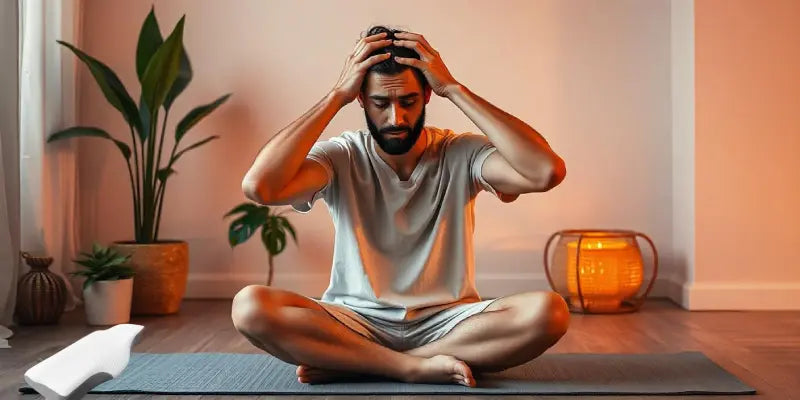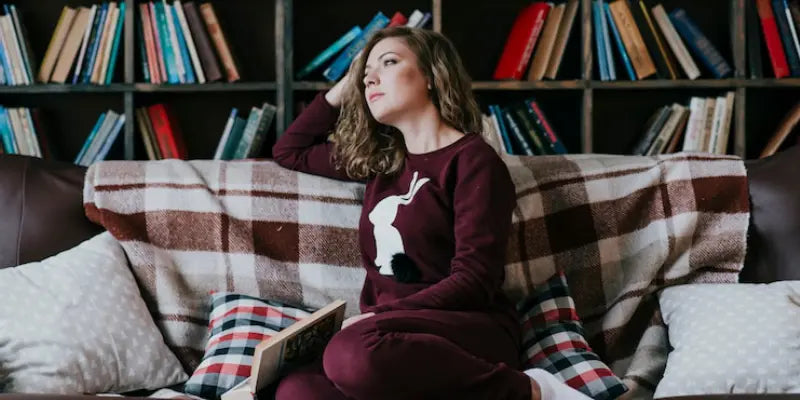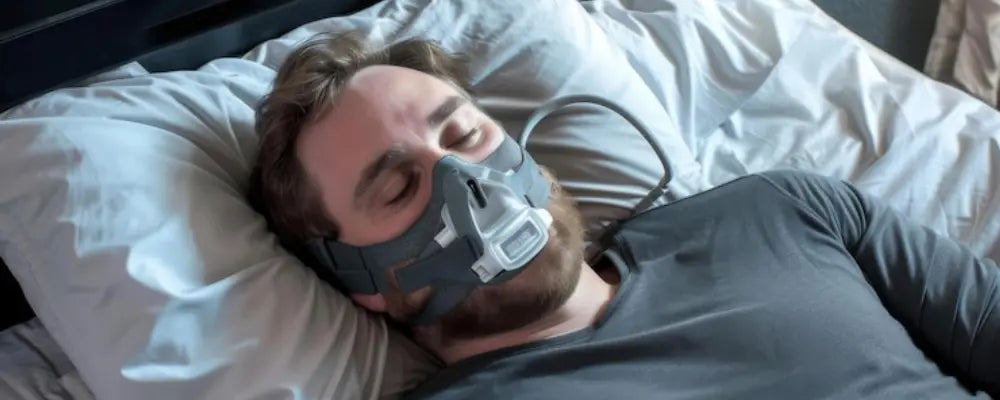
Do Women Need More Sleep Than Men?
Every individual is different and what works for one person does not always apply to another. During pregnancy, a woman may require more sleep because of the hormones she releases that can affect her whole body. Finding the answer to this question can be difficult, but one piece of evidence from various world experts and studies supports the idea that women do need more sleep than men, however, it's not entirely clear why.
Do Women Need More Sleep Than Men?
Women generally need about 8 hours of sleep per day, while men typically need about 7 hours. Men may also require more sleep for optimum performance in certain activities. Women, on the other hand, generally experience more fatigue and problems concentrating during the later stages of the menstrual cycle. Additionally, breastfeeding significantly interrupts a woman's sleep schedule and can continue for several months after the baby is born.
Some people maintain that women don't need as much sleep as men because they supposedly don't experience as many stresses in their lives. However, studies suggest that there are substantial differences between the amounts of sleep women and men need. Women's biologically based needs for sleep seem to be greater than ever before due to increased stress levels and ongoing occupational and familial responsibilities. It's important to keep these needs in mind when making decisions about how much sleep to get each night.
Reasons to believe that women need more of a certain sleeping pattern than men
There are many reasons to believe that women need more sleep than men. Research shows that women often experience more daytime fatigue and have a harder time getting to sleep at night because of various factors, such as hormone fluctuations and a higher number of mental stressors. Additionally, women’s bodies tend to produce more cortisol, which can disrupt the body's natural sleep rhythm. Women also tend to sleep in cycles with peaks and valleys
– meaning their body antonin production waxes and wanes throughout the night – which can result in poorer quality sleep.
Ultimately, it is important for both men and women to get the recommended amount of sleep each day. However, there are specific things that women should do to get better quality sleep. First and foremost, they should avoid caffeine close to bedtime as this will result in poorer sleep quality. They should also try rotating their best sleeping positions every few nights so that their body can get variety in its routine. Finally, they should keep a mantra like “sleep when you’re tired” in mind when trying to nod off at night – knowing that sooner rather than later they will drift off will help them achieve a sound slumber.
The Role of Sleep in Our Health
Sleep is important for both men and women. It helps the body to regulate its temperature, heals injury, restores energy, and eliminates toxins. However, women typically need more sleep than men. Studies have suggested that women need at least 7 hours of sleep a night to be healthy and functioning, while men only need 6 hours of sleep.
One reason why women may need more sleep is because they are biologically programmed to take care of their bodies. Women tend to have a higher percentage of body fat and are physically capable of dealing with some health issues that affect men more severely. Additionally, women often experience hormonal changes throughout the menstrual cycle that can affect how much sleep they need.
If you are struggling to get enough shut-eye, there are a few things you can do to improve your sleep habits:
- Make sure your bedroom is dark and quiet. This will help you fall asleep faster and stay asleep longer.
- Avoid caffeine before bedtime. Caffeine disrupts the natural rhythm of your circadian rhythms, which can make it difficult to fall asleep.
- Establish a regular bedtime routine including winding down for 30 minutes before going to bed and avoiding screens in the last hour before bedtime
The Risks Associated with Shortened Bedtimes
Sleep is an essential part of healthy living. It allows the body to heal after injuries and helps the brain function properly. While there is no definitive answer as to whether women need more sleep than men, there are some risks associated with shortened bedtimes.
For one, a lack of sleep can lead to fatigue and an inability to concentrate during the day. Additionally, a lack of sleep may increase your risk for obesity, heart disease, type 2 diabetes, and certain types of cancer. Furthermore, inadequate sleep may also worsen mood swings and other psychiatric disorders. In extreme cases, insufficient sleep can even be fatal.
If you are struggling to get enough sleep, it is important to talk to your doctor or health care provider about possible solutions. There are many different ways to improve your sleeping habits, and most require some form of adaptation on your part. If you feel like you are not getting enough restful sleep, it is important to seek help as soon as possible so that you can maintain optimal health.
Why Are Pillows Important?
If you're like many women, finding the right pillow is not always an easy task. Let’s discuss the different types of pillows for women and what they are best suited for.
Pillows are one of the most important pieces of bedding for people of all genders. The right pillow can make a world of difference when it comes to sleeping comfortably, and there are many different types available to suit everyone’s needs.
Some people swear by traditional pillows, while others find that adjustable pillows are the best option for their unique sleep style. No matter what type of pillow you choose, be sure to follow these tips to get the most out of your slumber:
Decide What You Need the Pillow For
If you’re looking for a standard pillow, you probably don’t need anything too fancy. However, if you have neck or back problems, or want a comfortable pillow that will support your head and neck, you might want to consider getting a memory foam pillow or an adjustable pillow.
Consider Your Sleep Style
Do you like to sleep on your side or your stomach? Do you prefer a thin or thick pillow? These are all factors that will affect which type of pillow is best for you.
Measure Your Head and Neck Before Buying a Pillow
To get the most comfortable fit, measure the circumference of your head (including your hair) and the length of your neck at the base (where it joins your spine). This will give you an idea of what size pillow is best for you. Remember to adjust the size accordingly!
A favorite pillow we would recommend
There are many different types of pillows that can be used for sleep, but one of our favorites that we would recommend is a memory foam pillow. Memory foam pillows are popular because they are soft, but support your head and neck well so you don’t feel like you’re sleeping on a rock. Sleepsia pillows are designed to contour to your head, providing maximum support and allowing you to sleep soundly. Not only do they improve your sleep quality, but they can also help improve your spine alignment and reduce neck pain. If you’re on the hunt for a new pillow, consider trying out a memory foam one – it could be the best decision you make for your health and well-being.
Some of the benefits of sleeping on a memory foam pillow include:
- They help reduce stress and anxiety because they provide comfort and support during sleep.
- They increase your chance of getting a good night's sleep because they are designed to contour to your body.
- They can also help you avoid neck pain or headaches because they conform to your head and neck better than other types of pillows.
Sleepsia Memory foam pillows are one of the most popular types of pillows on the market. This is because they offer a variety of benefits that other types of pillows don't. Memory foam pillows are:
- Hypoallergenic: This means that a memory foam pillow will not cause any issues for those with allergies.
- Supportive: Memory foam is a very supportive type of material, which means that it will help to distribute your weight evenly throughout your sleeping surface.
- Comfortable: Many people find memory foam to be very comfortable, even when compared to other types of pillows.
- Moisture Resistant: Memory foam is resistant to moisture, which means that it will not get too hot or too cold while you are sleeping on it.
Conclusion
Do women really need more sleep than men? While there is no real scientific consensus on the matter, many people seem to think so. Some argue that women are biologically programmed to need more sleep than men, while others claim that men and women get the same amount of sleep. The truth probably lies somewhere in between these two positions, but regardless of whether or not women actually need more sleep than men, getting enough shut-eye is undoubtedly a good idea for overall health and well-being. So next time you find yourself tossing and turning all night long, consider going extra hours and sleeping in until noon—you might just be surprised at how good it feels!








